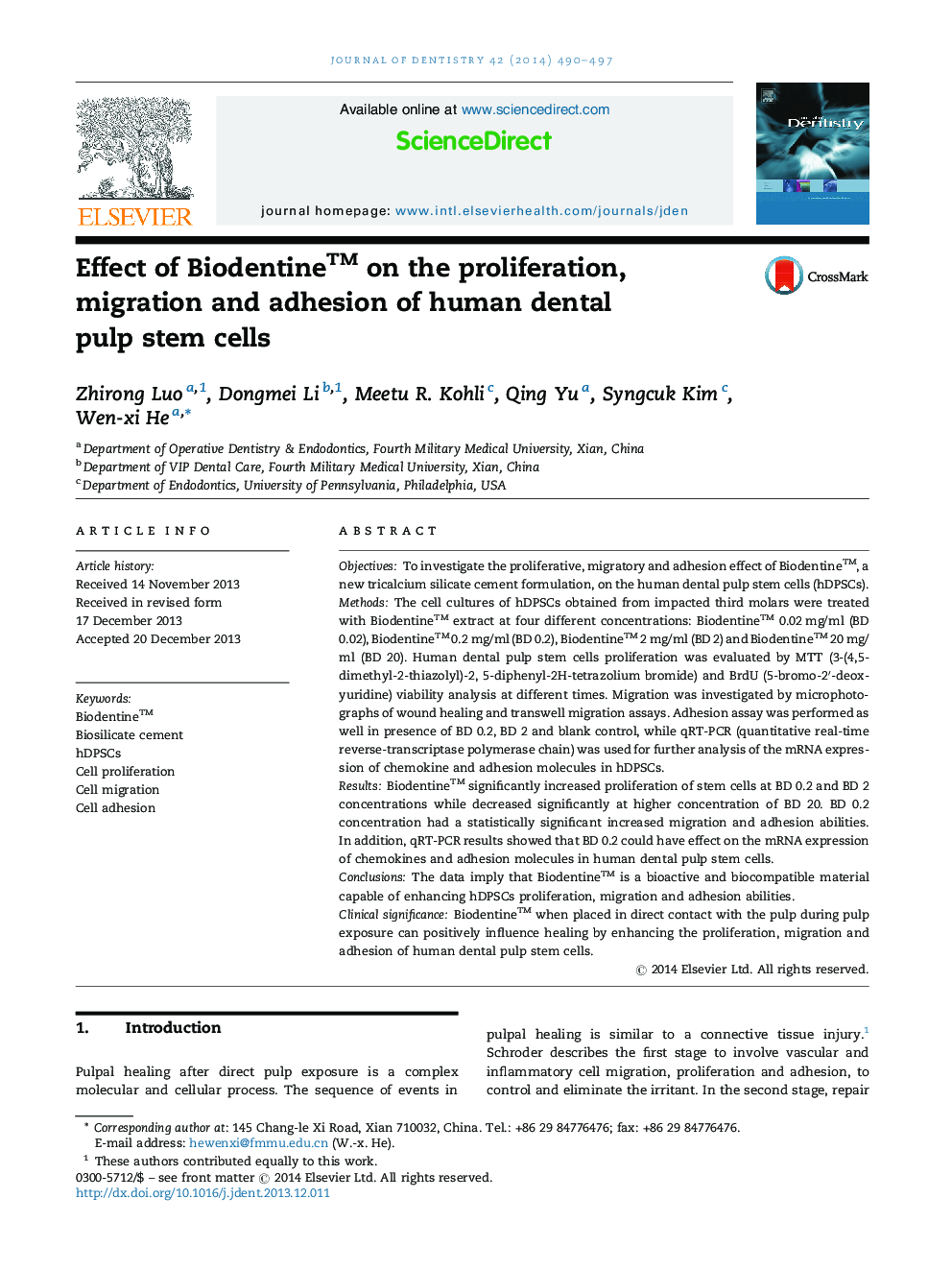| Article ID | Journal | Published Year | Pages | File Type |
|---|---|---|---|---|
| 6053113 | Journal of Dentistry | 2014 | 8 Pages |
ObjectivesTo investigate the proliferative, migratory and adhesion effect of Biodentineâ¢, a new tricalcium silicate cement formulation, on the human dental pulp stem cells (hDPSCs).MethodsThe cell cultures of hDPSCs obtained from impacted third molars were treated with Biodentine⢠extract at four different concentrations: Biodentine⢠0.02 mg/ml (BD 0.02), Biodentine⢠0.2 mg/ml (BD 0.2), Biodentine⢠2 mg/ml (BD 2) and Biodentine⢠20 mg/ml (BD 20). Human dental pulp stem cells proliferation was evaluated by MTT (3-(4,5-dimethyl-2-thiazolyl)-2, 5-diphenyl-2H-tetrazolium bromide) and BrdU (5-bromo-2â²-deoxyuridine) viability analysis at different times. Migration was investigated by microphotographs of wound healing and transwell migration assays. Adhesion assay was performed as well in presence of BD 0.2, BD 2 and blank control, while qRT-PCR (quantitative real-time reverse-transcriptase polymerase chain) was used for further analysis of the mRNA expression of chemokine and adhesion molecules in hDPSCs.ResultsBiodentine⢠significantly increased proliferation of stem cells at BD 0.2 and BD 2 concentrations while decreased significantly at higher concentration of BD 20. BD 0.2 concentration had a statistically significant increased migration and adhesion abilities. In addition, qRT-PCR results showed that BD 0.2 could have effect on the mRNA expression of chemokines and adhesion molecules in human dental pulp stem cells.ConclusionsThe data imply that Biodentine⢠is a bioactive and biocompatible material capable of enhancing hDPSCs proliferation, migration and adhesion abilities.Clinical significanceBiodentine⢠when placed in direct contact with the pulp during pulp exposure can positively influence healing by enhancing the proliferation, migration and adhesion of human dental pulp stem cells.
